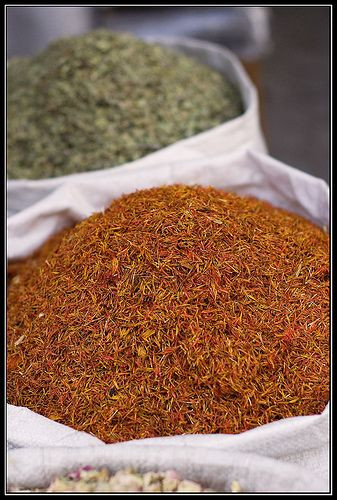Saffron Can Help Prevent Liver Cancer

Saffron may prevent liver cancer
Saffron a known spice have been found to promote apoptosis a regulated form of cell death, and inhibit growth of cancerous cells in animal models
Researchers suggest that saffron (Crocus Sativus L.) which have been used as a spice for flavoring and coloring food, and found used in Chinese traditional medicine, may provide a significant chemo-preventive effect against liver cancer in animal models.
When saffron was administered to rats with diethylnitrosamine (DEN) - induced liver cancer, inhibition of cell expansion know as apoptosis; programmed cell death was observed. The research findings will appear in journal Hepatology in association with the American Association for Study of Liver Disease.
Hepatocellular carcinoma accounts for most liver cancers. In most cases, the cause of liver cancer is usually scaring of the liver (cirrhosis). Cirrhosis may be caused by; Alcohol abuse, certain autoimmune disease of the liver, long term inflammation of the liver, Hepatitis B or C infection, too much iron in the body, according to the National Institutes of Health.
"In the fight against cancer, there has been much interest in chemo-preventive properties of natural herbs and plants," said Prof. Amr Amin from United Arab Emirates University. "With limited treatment options, approaches that prevent cancer development are among the best strategies to protect against the disease."
Previous studies have shown that saffron, a naturally derived plant product, possesses antioxidant, anti-cancer, and anti-inflammatory properties.
Researcher to explore the properties of saffron induced lesions in rats, mimicking benign and malignant tumors in human. The team administered saffron to the animals at 75mg/kg, 150 mg/kg, and 300 mg/kg per day for two week, prior to DEN injection and continued the regiment for 22 weeks.
The test results show saffron had greatly reduced the number and the incidence of liver nodules, and animals receiving the highest dose of saffron have shown complete inhibition of hepatic nodules.
"Our findings suggest that saffron provides an anti-cancer protective effect by promoting cell death (apoptosis), inhibiting proliferation of cancerous cells, and blocking inflammation," concluded Prof. Amin. "Further investigation of saffron extract and its mechanism of action in HCC are currently underway."
Published by Medicaldaily.com



























